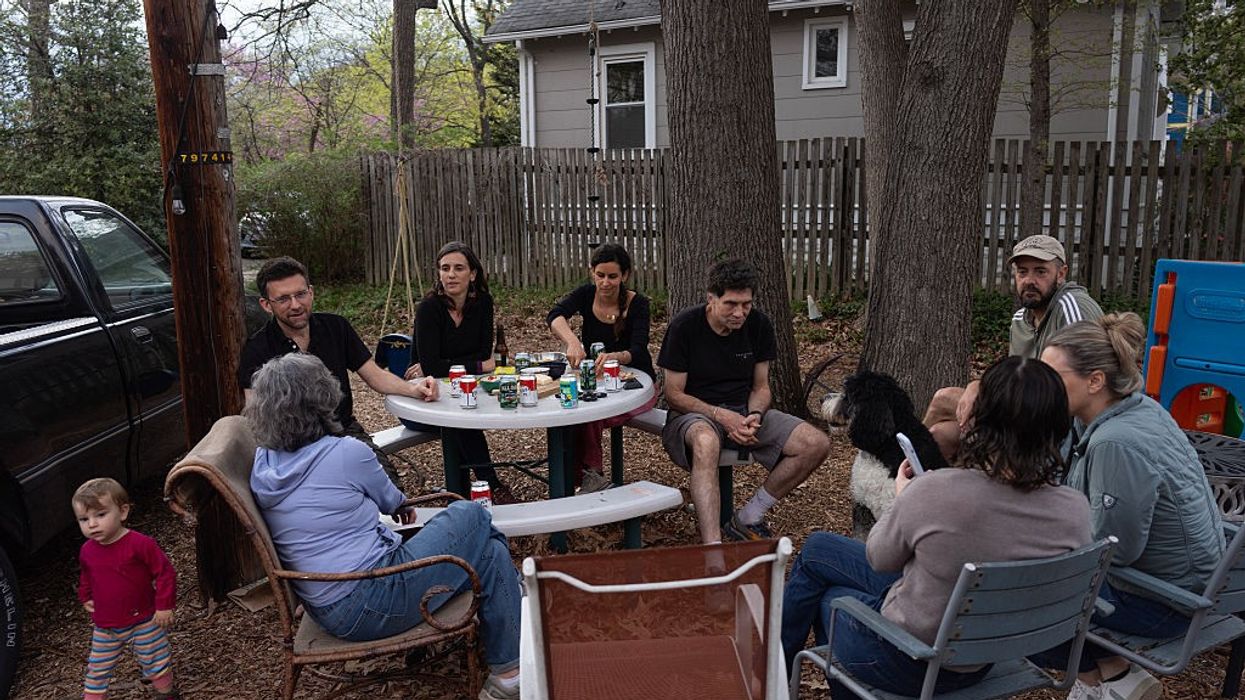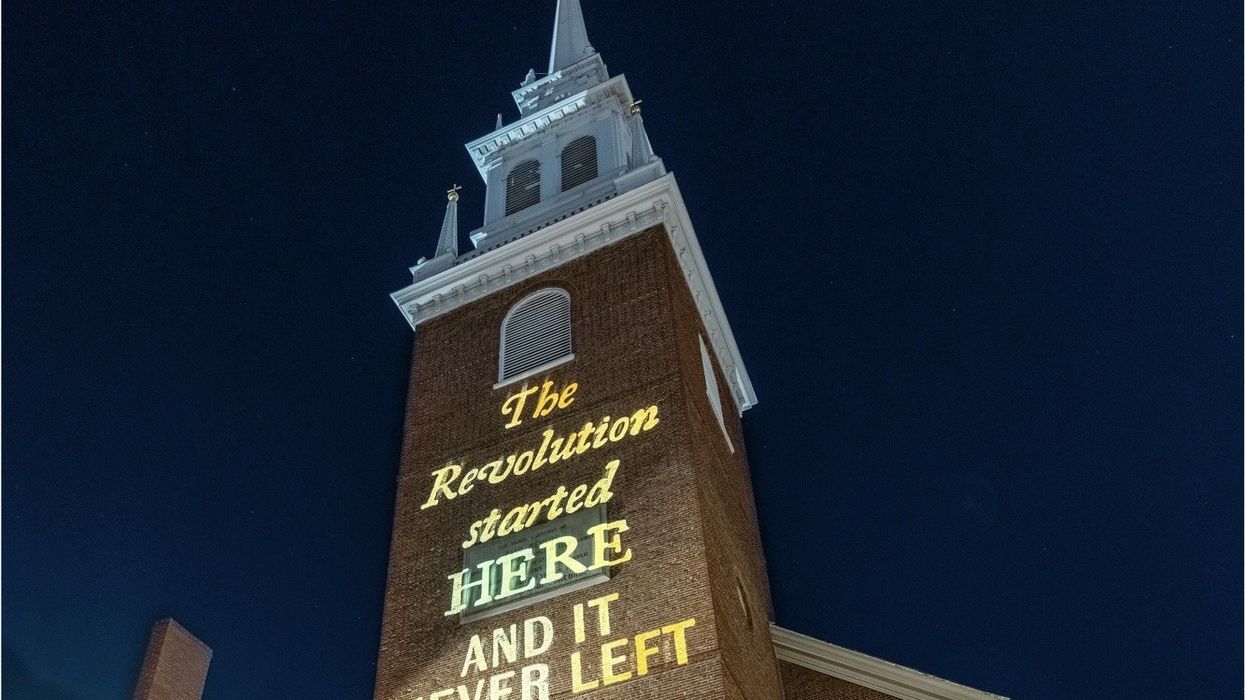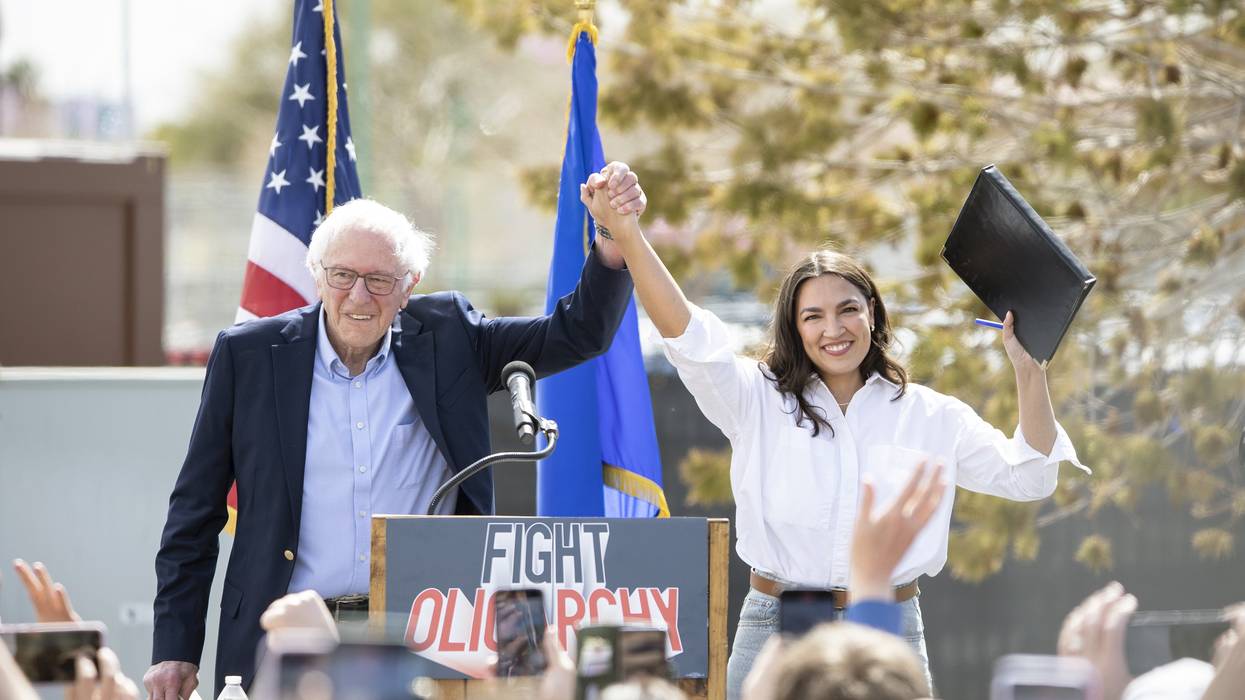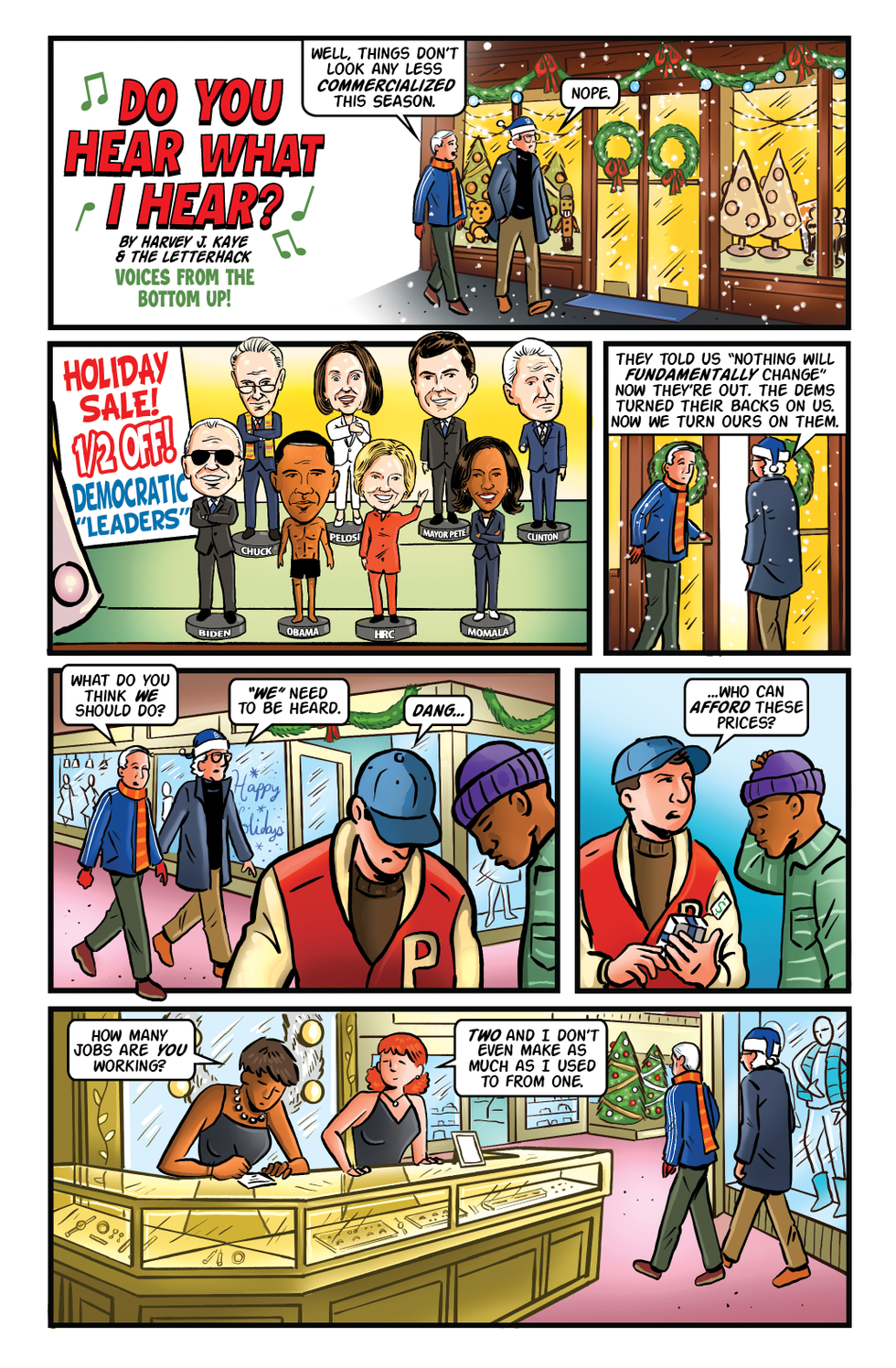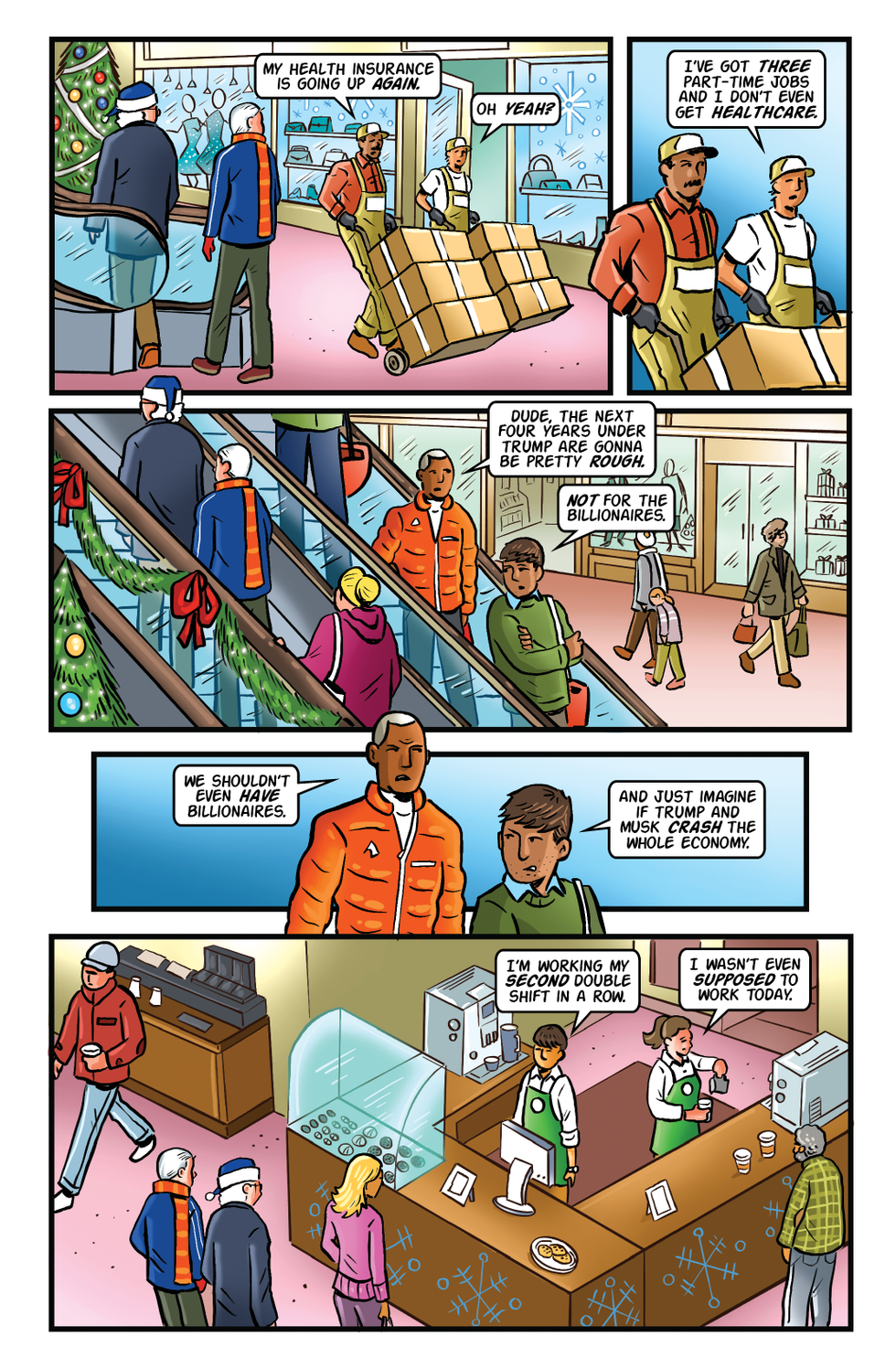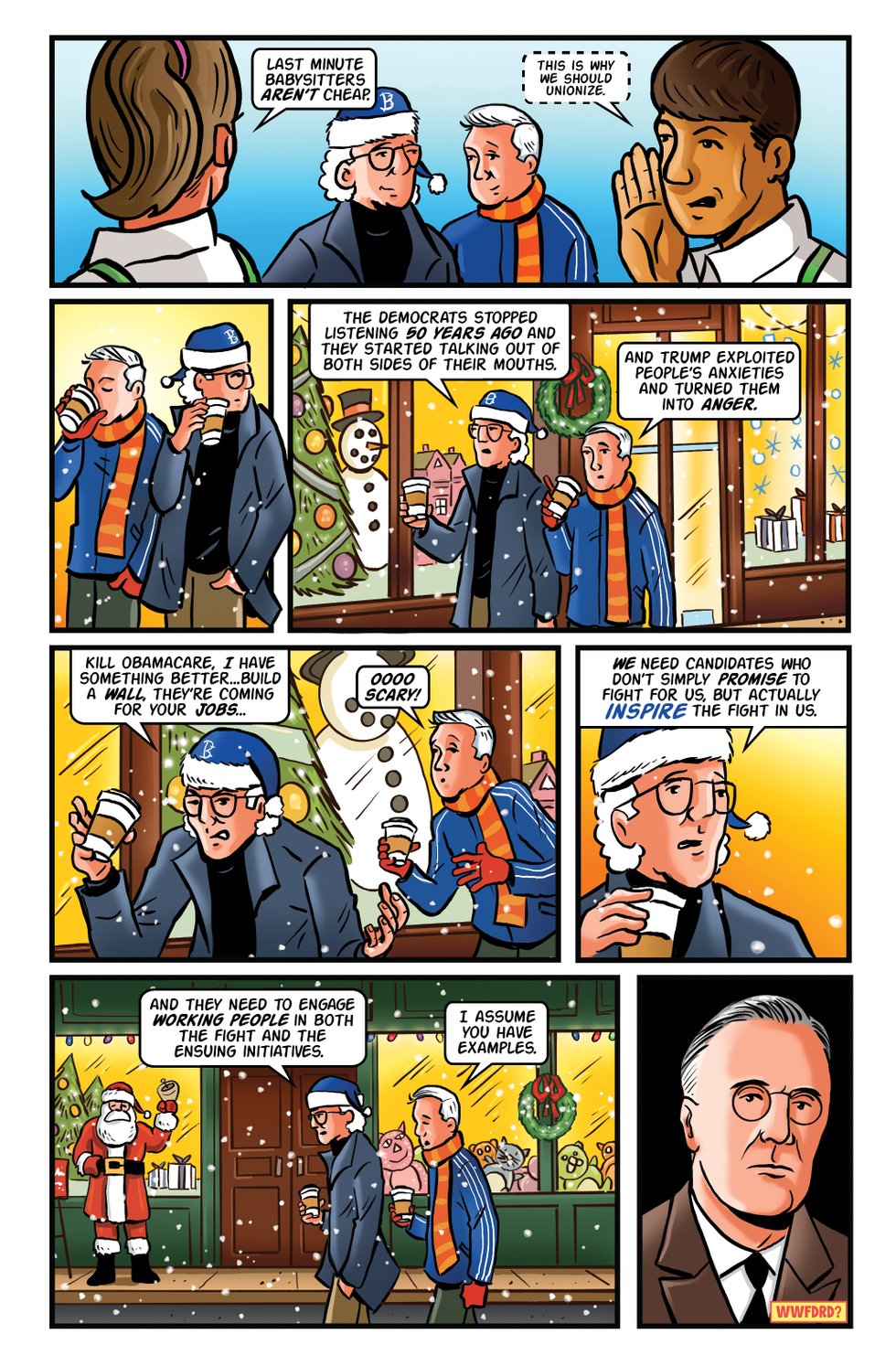However, there is a path forward. We can change the “configuration” of the party, i.e. transform the Democratic Party.
Can that be done in time to rebuff Trump and save our democracy? The answer has to be “yes” because it’s our only hope.
Fortunately, right on cue, events over the past few weeks reminded the public why centrist Democratic leaders have failed to protect America from Trump; and that progressives, in sharp contrast, are more than capable of rejuvenating the opposition and inspiring mass participation.
This is the final installment in a four-part series that argues that a progressive transformation of the Democratic Party is required to defeat Trump, Musk, the lockstep GOP, and 21st-century fascism in general.
Indeed, by early-March, public approval of the Democratic Party was already at an all-time low. The central complaint was that the Democrats were too weak to stand up to Trump. And that was before Senate Minority Leader Chuck Schumer’s (D-N.Y.) capitulation.
On March 14, a Stopgap Budget Bill needed to pass the Senate to avoid a government shutdown; and, to overcome a filibuster, it needed support from a handful of Democratic Senators. Finally, here was the opportunity to block the Trump agenda, to “gum up the works” as Democrats had promised. Petitions arrived on Capitol Hill; phone calls flooded the switchboard, pleading with Democrats to take a stand. Nope. Schumer delivered the votes the Republicans needed. Disgust with the Democrats reached a new crescendo.
Meanwhile, Sen. Bernie Sanders (I.-Vt.) was barnstorming through middle America, speaking to overflow crowds. Then he was joined by Rep. Alexandria Ocasio-Cortez (D-N.Y.) for a swing through the Mountain West and the crowds grew even larger and more exuberant. Here was the vital opposition. The vast audience hung on every word, recognizing that the progressive proposals presented were the antidote to Trump’s destructive agenda. They spoke to the needs, not just the anger, of the population.
Most importantly, there was a tangible sense of solidarity present. Both Bernie and AOC called upon the people gathered to join with them, to organize in their communities and build a movement to defend democracy, protect the environment, and advocate for policies that prioritize the interests of the working class—and, significantly, remain engaged with electoral politics.
This was exactly the message people came to hear. They understand that a popular movement that presents a positive progressive vision for society and organizes to win elections is necessary to turn the tide against Trump. They are ready to act, along with millions more across the country.
Progressives have to seize the moment.
The Constitution’s system of checks and balances, designed to protect America from tyranny, are teetering. The courts have limited some damage, but one would have to be willfully naive to believe that a Federalist Society-dominated Supreme Court, the ultimate arbiter in the judicial branch, will rule against right-wing authoritarianism. We already see that congressional Republicans, even with razor-thin majorities, will not break with Trump to defend the Constitution.
Therefore, our best hope for preserving our constitutional democracy is the election of a Democratic House majority in 2026. As a prerequisite, we will need a party that fights before election day to ensure that we have free and fair elections. The Democratic Party is the only institution in contemporary American society that can take on this task—and the more people it mobilizes, the more likely it will succeed.
This moment is crying out for progressive leadership.
This article outlines a workable strategy for progressives to transform the Democratic Party through mass entryism. The plan’s centerpiece is an updated “outside-inside strategy” designed to overcome the barriers that protect entrenched interests inside the party. Through this strategy, we can unseat the neoliberal status quo, which condemns the party to failure, and facilitate the mass entry of the party’s progressive base, which will lift the party to victory over fascism.
History is demanding that the Democratic Party change—and change fast. That is not going to happen by simply wishing it will come true.
This is the final installment in a four-part series that argues that a progressive transformation of the Democratic Party is required to defeat Trump, Musk, the lockstep GOP, and 21st-century fascism in general.
The first two articles explained that of the three major political tendencies in the country (the Trumpian reactionaries on the right, the neoliberal “moderates” in the center, and the progressives on the left), only the progressives adequately address the two major complaints that the public has about the direction of the country: 1. The performance of the economy for the vast majority of Americans; and 2. Mistrust of politicians and the political system.
As such, the only effective antidote to the current crisis of our democracy will be the rise of the progressives.
The third article, the most polemical in the series, challenged Americans to recognize some difficult truths. Our constitutional system of government is under attack from within. We are at a perilous moment in our history. For all its flaws, both historical and contemporary, our democratic republic and open society must be defended against the unfolding fascist coup. However, our last bastion of defense is a seemingly listless Democratic Party. As one of the two parties in a nationwide two-party system, it alone has the capacity to take on and defeat a threat of this magnitude. Therefore, it is incumbent upon all people of conscience to get inside the Democratic Party and get to work.
This article, the final installment in the series, presents a viable plan for progressives to transform the Democratic Party into the party that we need; and which, through an alliance with independent left progressive elected officials (like Bernie Sanders), will be poised to win majorities across the country, undo the damage wrought by Trump, and build an America as great as its promise. A country at peace with the world, in harmony with the planet, with an economy organized to ensure that the working class is a prosperous middle class.
Thus, before introducing the “outside-inside” plan to transform the Democratic Party, it’s important to reiterate that this is more than a strategy to win elections in the short run, it’s an outline to dramatically improve American society through mass political participation. As such, it is a strategy to win elections now and for the foreseeable future.
It’s not enough to express anger at Trump—as centrist Democrats are finally starting to do, even as they intend otherwise to proceed as before. Such an opposition party cannot defeat Trumpism. Sure, it’s plausible that this sorry crew could pull off a victory in the midterms—but only because of the horrors of Trump.
While any victory over Trump is welcome, no one should believe that a party that represents the previous status quo can vanquish Trumpism in the long run.
The public recognizes that by complacently calling for a return to “norm,” establishment Democrats are advocating for a society with little to offer them. America in the 21st century has been defined by massive wealth inequality; where the average person has to have two, three, or four jobs, working 60, 70, 80 hours a week, just to keep their head above water; with a broken and inhumane healthcare system designed primarily to steal people's money and give it to the idle investor class; where there is an epidemic of despair among our youth; with legions of fellow citizens homeless; where the jobs are not coming back; where a lot is said but nothing is ever done about persistent structural racism, or mass incarceration, or rampant drug addiction (both “legal” and illegal); and humanity is burning itself off the planet.
Such an opposition party in a two-party political system, even if it achieves a narrow 51-49 victory in 2026 or 2028, can only forestall the rise of savage fascism—because only one of the two options promises change.
We need another option. Only an opposition party that sincerely addresses the crises that afflict American society and proposes workable solutions—and then implements those plans upon being elected, like FDR—can revive faith in the country. We must transform the Democratic Party.
What follows is a simple blueprint for transforming the Democratic Party into the party that America, and all those who believe in democracy around the world, needs in the 21st century.
The Outside-Inside-Outside Strategy
The following proposal is based on Progressive Democrats of America’s (PDA) two decades of experience working to increase progressive influence within the Party.
Throughout its history PDA has deployed an “inside-outside” strategy. Its members establish themselves inside their local party while maintaining coordination with social movements and the labor movement on the outside of the party. This not only builds support for these movements in the political and legislative realms, but also grounds PDA members in the issues important to communities and the grassroots.
Then, in 2013, PDA launched the Run Bernie Run campaign, calling upon Sen. Sanders to run for president as a Democrat. The campaign was successful, and Sanders’ spectacular performance in the primaries changed American politics for the better—reestablishing progressive politics nationwide.
What better time to build a party through which people will meet fellow community members and share their ideas about how society should be organized?
In the aftermath of the 2016 Sanders campaign, tens of thousands of activists entered the Democratic Party in the hope of moving it in a progressive direction.
While some met with success, most encountered considerable resistance. Democratic Party rules differ from state to state, so they were made to feel unwelcome in a wide variety of ways.
Fast-forward to 2025, and the general sentiment among progressive activists is that the party establishment will do whatever necessary to keep them away.
However, staying away is not an option. History is demanding that the Democratic Party change—and change fast. That is not going to happen by simply wishing it will come true.
What’s needed is a new strategy to transform the Party.
Here’s our proposal, based on two decades of experience:
Progressives must establish an organization—or, at least, a well-defined network of organizations—on the outside of the Democratic Party that is dedicated to transforming the Democratic Party into an exemplary progressive Party committed to the needs and aspirations of the general public.
This organization or network would convene progressives in each state since party rules differ significantly from state to state, and also coordinate nationally, with the clear goal of overcoming the barriers to progressive influence that the party establishment has erected.
As for a unifying political agenda, which is very important, it should be kept simple so that it’s not a source of dissension and distraction. PDA supports adopting the 2020 Sanders for President platform, with some minor tweaks and updates. Also, given the current crisis, a short negative agenda, opposing Trump’s policies, could be added.
Just as importantly, a set of basic demands to reform the Democratic Party should be adopted nationally, including the elimination of dark money from all party primaries, mandatory reporting of all revenue and expenditures, and requirements for a high level of direct engagement with party members and the general public.
In every state, our organization should operate on two fronts: 1. It should organize members to move into the party, determining and then implementing strategies for transforming the party in a progressive direction; and 2. It should hold public-facing events, showing the public what a truly inclusive and welcoming 21st century political party can look like.
On the first front, here are seven strategies that the statewide organizations could deploy:
- Decide upon one progressive candidate to endorse in each primary election for a local, state, or federal office. It’s essential to unify progressive support behind the endorsed candidates and avoid splitting the progressive vote.
- Encourage all members to sign up with the Progressive Caucus of their state’s Democratic Party. Progressive Caucuses exist in about 30 states (members in the other states should petition the party to create one). Joining the Progressive Caucus will keep members abreast of progressive initiatives within the party; and the increased membership in the caucus will be a significant show of strength. However, the caucus is not a substitute for the organization itself, as most caucuses have a limited purview within the party. Still, the caucus can operate as our anchor inside the party.
- Encourage members with the time and fortitude to run to be a party officer or a member of an official party committee, at either the county or state level, or as a precinct captain. The officer and committee candidates should campaign on changing the platform and rules of the party in a progressive direction, and advocate for greater public engagement; party finances should be transparent; and big money should be banned from primaries, with severe consequences, such as de-endorsement, for candidates who do not comply.
- Run a candidate for party chair on a progressive policy and party reform platform (see No. 3).
- Campaign for the adoption of a truly progressive party platform. Once this is achieved, insist that candidates endorse the platform and then hold elected Democrats accountable.
- Encourage members to join their local Democratic Clubs, or form a club themselves, and share the progressive agenda with members of the club.
- Every person who joins the outside-inside organization should be encouraged to attend Democratic Party events, its state conventions, follow news about the internal operation of the party, and vote in party elections—but also (and this is important), because most working people in America have so little time, it is essential the organization respect this fact, and find ways to engage with such busy people, who support the organization’s work, to keep them updated and feeling they are valued members of the organization even if they can’t attend many events or meetings.
Then, most importantly, after pursuing these initiatives, members should reconvene in the outside organization and share notes about their success or failure. Like a football team re-huddling after every play, they can adjust their approach and go for it again. In all likelihood, they will devise strategies beyond the seven outlined above.
Over time, and possibly very quickly, this approach will produce breakthroughs. In some states, the party infrastructure is not well populated. Even in states where more people are participating, there’s often a lack of enthusiasm, let alone inspiration. Still, in most cases, progressive activists will encounter barriers to entry and influence.
This is why the establishment of an organization, operating independently on the outside of the party, but dedicated to gaining power in each state party, will make a huge difference compared to recent efforts. Getting to reconvene with fellow progressives, hear about their experiences, and use that knowledge to devise better strategies will mitigate any sense of defeat, and build perseverance.
Lastly, at the national level, the organization should push for a similar ban on dark money in the presidential primaries, and fight to make sure that all the candidates share a level playing field.
On the second front, that of inviting the public to join the effort, the organization should more-or-less operate as a de facto political party—as a party-inside-a-party, so to speak, that happens to be on the outside of the party. And, by adopting exemplary practices, it can prove to the world that democracy, far from dying, remains the best system of political organization for the 21st century.
In this regard, each statewide branch of this new organization must allow for broad participation. This means holding public forums, inviting everyone regardless of political affiliation, engaging with and learning from the people. (Each state branch of the organization should have its own fundraising capacity and balance sheet. Even as some funding will come from the national organization.) Through such events, we can rapidly grow the ranks of our “progressive party outside the party.” In turn, we will invite the new members to join our efforts to “take over” the official Democratic Party. Soon, we will be able to flood the party with progressive activists.
We should aspire to build a party that accommodates people according to their needs. In particular, we must find ways to hear from people who work long hours, and don’t have time to attend meetings, let alone volunteer. Just as we must respect people who don’t want a barrage of text messages. We should engage people at their own pace; always keeping an open line of communication and making sure to check in with everyone a few times per year, placing a priority on listening.
The great Italian political philosopher Antonio Gramsci posited the idea of a political party creating a counter-hegemonic space, where the people could discover their own culture. Certainly, this concept should be applied to our era when countless hours of our lives are lost staring into handheld devices, our minds channeled down rabbit holes by algorithms designed by and for the benefit of our class enemies. What better time to build a party through which people will meet fellow community members and share their ideas about how society should be organized? Study after study suggests that contemporary Americans have a ravenous appetite for exactly this kind of social space.
The organization will also facilitate a full flowering of the classic “inside-outside strategy.” Representatives from social movements and labor organizers will always be provided a platform—as will the broad array of Resistance activists, in particular those from communities and groups of workers under direct attack from the Trump administration. Members of the organization will convey their messages inside the party and call upon elected Democrats to support them.
Also, the organization’s public events will invariably attract people supporting the wide array of radical and visionary projects long marginalized by the moderate Democratic Party. A progressive party, true to its principles, would want to learn about the innumerable mutual aid projects across the country, and consider public policies to support such efforts. Indeed, ours should be a party open to all projects that serve the general welfare.
As such, we should not be shy about reclaiming words like liberty and freedom, long held hostage by the right wing, for all the people—and we should absolutely pull no punches in embracing free speech, rejecting censorship, and exposing right-wing hypocrisy on that front. Such initiatives will help negate the constant misrepresentation of progressives in right-wing media (and by moderate Democrats as well).
Of course, the organization should always be advocating for, and educating the public about, signature progressive policies like Medicare for All, a 21st-Century Economic Bill of Rights, free public higher education and childcare, affordable housing, support for the labor movement, a reduction in Pentagon spending, the Green New Deal, and the Rural New Deal. Almost all of these have majority support among the general public, and their adoption would reestablish an American social contract defined by prosperity for all.
Now for the big question: Can this work?
Two answers.
1. It’s a moot question. It simply has to be tried. Progressives are far too aware of the failings of mainstream Democrats to have faith that they can save us from fascism. But it goes deeper than that. Their zombie ideology is not going to revive itself. History has turned the page on neoliberalism.
So, either we act now to position progressive politics as the viable alternative to Trump or we’re complicit in the end of our democratic society. In our two-party system, there’s only one option: We have to transform the Democratic Party. So, let’s get to it.
2. Yes, it will work.
But only if two important conditions are met.
The first is that the balance of the progressive movement must get behind the effort. You may have noticed that I haven’t been describing this as a PDA initiative, though PDA most certainly will pursue the strategy outlined above. (Indeed, please join PDA, as we will be launching this initiative in the next week—including the recruitment of partner organizations.)
PDA is only one of a number of sizable national progressive organizations, and, for a campaign like this to be successful, it’s important that most of the others join the effort too.
In the coming days, PDA will be reaching out to our regular partners, Our Revolution and Roots Action, as well as a long list of frequent partners and allies, including labor unions, and ask them to be partners.
Fortunately, there is good news, very good news, on this front. Bernie Sanders has been calling for a similar approach to electoral politics in recent days.
On the one hand, he has been calling for the Democratic Party to make many of the changes outlined above (with special emphasis on getting dark money out of the primaries). In general, his critique of the contemporary party matches up with PDA’s.
On the other hand, Bernie has been emphasizing something that, at first glance, may appear to conflict with PDA’s strategy, but the opposite is true—we love the idea. Sen. Sanders has been calling on progressives to consider endorsing independent candidates, especially in parts of the country where the Democratic brand is in shambles. Why does this not contradict our strategy? Because it’s something PDA has practiced throughout our history. You may recall that we ruffled some feathers in the party when we drafted an independent senator to run for president as a Democrat in 2016. The same independent senator that we’ve endorsed every six years.
The Democratic Party can be the party of the working class—and no one will think we’re gaslighting anyone, and we’ll win national elections—when we adopt the Sanders-AOC policy program, which will dramatically improve the lives of the majority of the population.
Not only does Sen. Sanders’ proposal about independent progressive candidates suit our strategy perfectly, but it will be aided by our organization. The success of such an independent candidate requires that the Democratic Party not throw its support behind a Democrat in the general election—this was the case last year in Nebraska when the Democratic Party “stood down” for independent candidate Dan Osbourn. Our “outside-inside” organization is perfectly suited to help facilitate, and, with the right independent candidate, support this strategy.
In the coming days, I will be reaching out to Sen. Sanders to talk about coordinating our efforts.
The second important condition is that, even in states where we might endorse independent candidates, the Democratic Party itself must be a central focus of the campaign. This can’t simply be a matter of supporting progressive candidates.
Why? Because Trumpism will not be vanquished until the opposition can implement transformative policies that will noticeably improve the lives of Americans. This will not be possible until progressives win control of the party and can diminish the power of big money, which effectively buys primaries for moderate neoliberal Democrats. This is especially pronounced in the U.S. Senate where Democrats, on balance, are more conservative than in the House—and where primary elections are much, much more expensive.
Thus, even though a strong majority of Democratic voters support progressive policies, congressional Democrats invariably champion a milquetoast set of technocratic adjustments that will improve very few people’s lives. This plays right into the hands of a demagogue like Trump. Yet moderate Democratic incumbents will be safe in their seats until progressives gain control of the party and can level the primary playing field (and also call out incumbents for not supporting the party platform). Only then will the public feel that Democratic Party candidates are serious about making changes to improve their lives.
It follows that building progressive power inside the party is a necessary precursor to the passage of transformative progressive legislation. This is an opportune time to pursue this strategy, as incoming Democratic National Committee Chair Ken Martin has said that he welcomes an influx of progressives into the party.
Of course, Martin extends this invitation in a spirit of party unity, which progressives should also embrace while never bending on principle. After all, it still remains essential that we join together to defeat the fascists and preserve our democratic republic.
Having said that, we will be calling for, and organizing to achieve, a progressive transformation of the party. We just need to proceed with grace and decorum. We’re confident that we’ll win the debate. The facts are with us 100%.
Neoliberal and moderate Democrats keep losing national elections to an anti-constitutional authoritarian Republican Party that itself has very low public support. Why? Because moderate Democrats are a status-quo political formation, and the public is profoundly dissatisfied with the state of the country.
Furthermore—and this really drives the point home—when it became apparent after the election that the mainstream Democrats had “lost the working class” to Trump, mainstream Democrats across the nation started talking about the working class. But there was no discernable change in the policies they support. This is gaslighting, and the public will see right through it.
Progressives, as part of the same political party as the moderates, need to explain this politely to the moderates and to the party activists, rank-and-file members, and the general public.
The Democratic Party can be the party of the working class—and no one will think we’re gaslighting anyone, and we’ll win national elections—when we adopt the Sanders-AOC policy program, which will dramatically improve the lives of the majority of the population.
I’m confident that progressives can win the debate over the direction of the party while maintaining a spirit of comity and anti-fascist unity.
So, there you have it. Public dissatisfaction with the party is so profound, the moment is ripe for a progressive takeover—and this can be achieved through some basic organizing and old-fashioned stick-to-itiveness.
Many historians have noted that periods of significant social progress often follow great crises. Well, with Trump, we have a great crisis unfolding.
If we take appropriate action now, not only can we limit the damage, but we can set the table for a new progressive era and the redemption of democracy.
Join PDA’s efforts to create a truly progressive Democratic Party, which we desperately need at this crucial hour of our history.
NB: In the previous article in this series, I promised to respond to the myriad objections (i.e. excuses) people have to becoming active in the Democratic Party. Because of the great length of this article, I will publish those retorts at the end of an addendum to this series that I will publish in a few weeks, which will also update the progress of the project outlined in this article.
